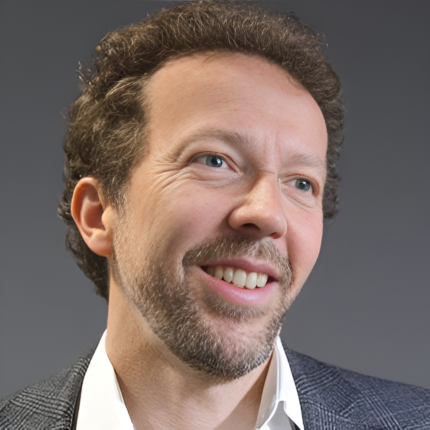A recent article in the Washington Post on “Pracademics” presents a polemic centred around the role and status of academics who work outside of universities in the UK and USA.
Jon Marcus paints a positive picture of the integration of so-called pracademics in higher education institutions, offering as a key rationale the value of professional and industry experience in teaching.
“Pracademic” isn’t a new term, though as with many such portmanteau terms its exact origins are unclear. One example of its use in the literature utilises the term to explore academic identities and whether they are “under threat”.
Since then, its use has proliferated and it appears now, to use the vernacular, to be having a moment.
But while the insights of academics with professional and industry expertise is without doubt beneficial – one could even say essential in today’s academy – the argument as presented by Marcus lacks nuance and ignores several critical issues.
Marginalisation
The advocates of this terminology make the point that many “non-traditional” academics feel marginalised within the structures and habitats of higher education.
As professionals bringing vocational expertise into the academy, they feel their contribution isn’t valued in the same way as those who have followed a more “mainstream” route in – from undergraduate to postgraduate, PhD to post-doc, and so onwards.
Yet the genesis of these feelings are more complicated than the rather simplistic argument made. A new academic’s own ideas about what an “academic” is or should be are very influential in whether they feel a sense of belonging. The culture/s within the institution they work at, at both macro and micro levels of the organisation, influence whether they feel valued, feel like an imposter, feel included, feel trusted.
A range of interdependent factors contribute to the academic’s development, or not, of a confident academic identity – and their route into academia need not be the most important factor.
A significant point of contention is the glorification of the term “pracademic.” The label itself could potentially lead to – or indeed add to – divisiveness and hierarchy in the academy. It implies a binary classification of academics – those who can provide practical insight from their industry experience, and those who can offer theoretical or research-based knowledge.
This separation implies an oversimplified dichotomy that could undermine the legitimacy of “traditional academics” and contribute to an unhealthy competition, rather than fostering collaboration and mutual respect.
While seeking to be representative, the term pracademic acts not to accommodate professional identity but rather implies that pracademics are not quite academic and academics have limited understanding of the professional context relevant to their disciplines.
Back here in the real world
The argument that pracademics can provide practical application and “real-world” context for students, and thus lead to better job outcomes, may seem compelling at face value.
However, it disregards the very essence of a well-rounded education, which is not solely to prepare students for the job market but also to foster critical thinking, creativity, and ideally a deeper understanding of a range of subjects. Though as Martha Gill writes in the Observer in her discussion of class and higher education:
…the consensus on this seems to swing rather wildly depending on precisely which group of potential students we happen to be talking about…
This is not to deny the value of practical knowledge and industry insights that professionals-turned-teachers can bring to the student experience. However, higher education should also expose students to the latest research, theories, and developments in the field – isn’t research enhanced learning and teaching what differentiates study at university?
Whilst it is undeniably challenging to achieve the “tri-professional” role of the well-rounded academic (subject expertise, research expertise, and pedagogic expertise), and perhaps realistically no academic is likely to have an equally weighted pie chart of professional abilities, our argument is that to be an academic means embracing the notion of developing in all these arenas.
Defining yourself as a “pracademic” risks shutting the door on this, and self-limiting who you are as an academic.
The article also implies that “pracademics” can help their academic counterparts keep up with changes in the world outside the lecture theatre. While a good course team should be a collaborative, collegial combination of colleagues with a range of skills and knowledge, the implicit assumption that “traditional” academics are inherently disconnected from the real world is fundamentally flawed.
Many academics are engaged in research that is closely related to real-world problems and industry practices. They actively collaborate with industry practitioners, work on field projects, and stay informed about industry developments.
It also fails to recognise a “best before date” for a “pracademic”. If a full time academic post is taken, for how long do the professional insights have currency? After a few years are they just a lapsed pracademic, without a home in either profession or the academy?
The race to net zero
Finally, the article fails to address the potential that a “pracademic role” could be used to justify different and lesser contracts, even zero hours contracts. The argument could be that as “pracademics” don’t undertake the full academic role, they are not as theoretically aware or research active – thus creating a role imbalance between the value of professional practice insights and “traditional academia”. The pracademic would be integrated, as Marcus argues for, but with a lesser status.
So while the integration of industry professionals into academia has its merits, the discourse surrounding “pracademics” should be approached with care and nuance. Academics of all flavours bring unique and valuable perspectives to the educational process, and their contributions should be appreciated without creating a false dichotomy.
If anything, and where necessary, we should be focused on expanding our understanding of what an ‘academic’ is, rather than promoting a separate classification.
A balanced, critically self aware approach, which seeks to inclusively define its qualities, where “research focused” and “vocationally focused” are seen as complementary parts of an academic identity rather than binary opposites, would offer students a more rounded and comprehensive education and staff a way to feel that they belong, whatever their route into the academy.
We are all academics and should celebrate our diversity within this single unifying term.














If both traditional academics and those entering academia from industry were rewarded equally, things may improve for all. In the modern UK university there is tension between the need to conduct world leading research and provide an education that prepares students for the world of work. Universities have moved on from being places where “research enhanced learning and teaching what differentiates” them. This tension is palpable in environments where practice is key to the success of a student in gaining employment or warning an income. The arts are a perfect example of this. Who would you rather have teaching you… Read more »
Thanks for your comment, Chris. I think you’re right, though it shouldn’t be an either / or in my opinion. Using the bricklayer example, I think that the academic bricklayer has the responsibility to theorise their practice (cutting edge approaches to bricklaying; innovative bricklaying materials – when is a brick not a brick?; alignment and impact on stability and durability; moving beyond bricks? and so on….) in order to develop new ways of understanding to take back into industry. I think that they should do this in partnership with their students (co-creation), as well as industry, thus ensuring that their… Read more »